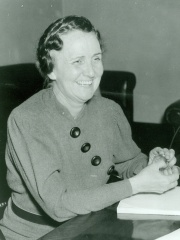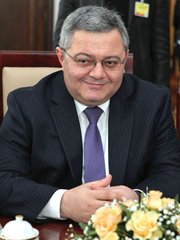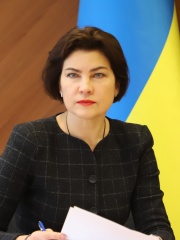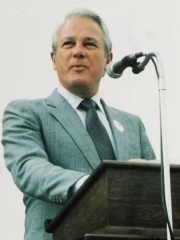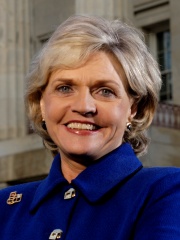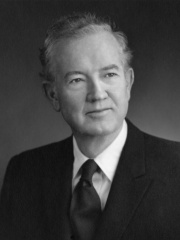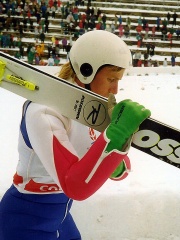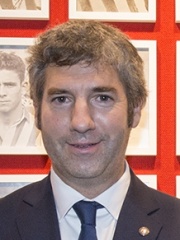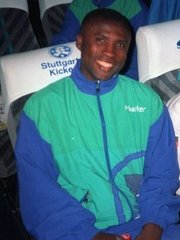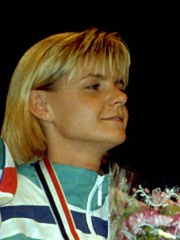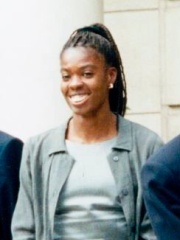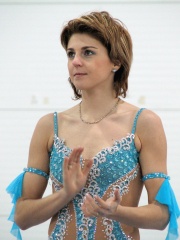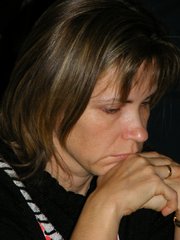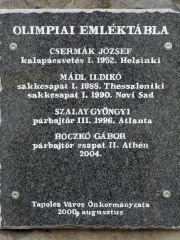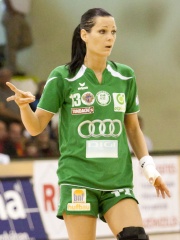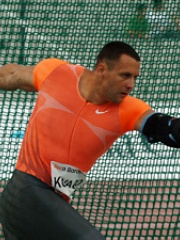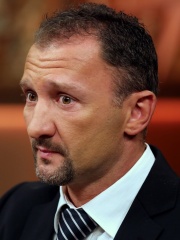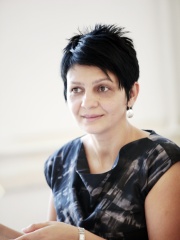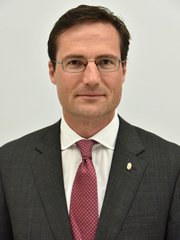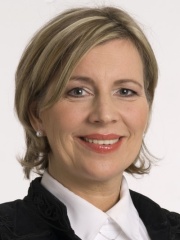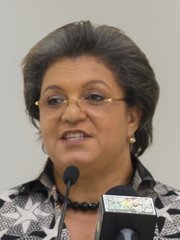Politician
Enikő Győri
1968 - Today
 Enikő Győri
Enikő Győri
Enikő Győri (born 17 July 1968) is a Hungarian conservative politician and elected Member of the European Parliament (MEP) with Fidesz. She left the European Parliament on 31 August 2010 to take up a position as State Secretary for European Affairs in her native Hungary. Read more on Wikipedia
Her biography is available in 14 different languages on Wikipedia. Enikő Győri is the 19,016th most popular politician, the 947th most popular biography from Hungary and the 161st most popular Hungarian Politician.
Enikő Győri is a Hungarian politician known for her work as a member of the Fidesz party and her role in various governmental positions, including serving as the Minister of State for EU Affairs. She has been influential in shaping Hungary's European Union policies and relations.
Memorability Metrics
Page views of Enikő Győri by language
Among Politicians
Among politicians, Enikő Győri ranks 19,016 out of 19,576. Before her are Bob McDonnell, Klara Geywitz, Kevin P. Chilton, Dixie Bibb Graves, David Usupashvili, and Iryna Venediktova. After her are Edwin Edwards, Mia Love, Bev Perdue, Carola Schouten, John Sparkman, and Alan Keyes.
Most Popular Politicians in Wikipedia
Go to all RankingsBob McDonnell
1954 - Present
HPI: 44.11
Rank: 19,017
Klara Geywitz
1976 - Present
HPI: 44.10
Rank: 19,018
Kevin P. Chilton
1954 - Present
HPI: 44.10
Rank: 19,019
Dixie Bibb Graves
1882 - 1965
HPI: 44.09
Rank: 19,020
David Usupashvili
1968 - Present
HPI: 44.08
Rank: 19,021
Iryna Venediktova
1978 - Present
HPI: 44.08
Rank: 19,022
Enikő Győri
1968 - Present
HPI: 44.07
Rank: 19,023
Edwin Edwards
1927 - 2021
HPI: 44.07
Rank: 19,024
Mia Love
1975 - 2025
HPI: 44.07
Rank: 19,025
Bev Perdue
1947 - Present
HPI: 44.06
Rank: 19,026
Carola Schouten
1977 - Present
HPI: 44.03
Rank: 19,027
John Sparkman
1899 - 1985
HPI: 44.01
Rank: 19,028
Alan Keyes
1950 - Present
HPI: 44.01
Rank: 19,029
Contemporaries
Among people born in 1968, Enikő Győri ranks 872. Before her are Jimmy Jean-Louis, David Usupashvili, Johnny Kelly, Sylvain Guillaume, Faizon Love, and Josu Urrutia. After her are Jonathan Akpoborie, Park Jang-soon, Anja Fichtel, Victor Feddersen, Niurka Montalvo, and David Regis.
Others Born in 1968
Go to all RankingsJimmy Jean-Louis
ACTOR
1968 - Present
HPI: 44.09
Rank: 866
David Usupashvili
POLITICIAN
1968 - Present
HPI: 44.08
Rank: 867
Johnny Kelly
MUSICIAN
1968 - Present
HPI: 44.08
Rank: 868
Sylvain Guillaume
ATHLETE
1968 - Present
HPI: 44.08
Rank: 869
Faizon Love
ACTOR
1968 - Present
HPI: 44.08
Rank: 870
Josu Urrutia
SOCCER PLAYER
1968 - Present
HPI: 44.08
Rank: 871
Enikő Győri
POLITICIAN
1968 - Present
HPI: 44.07
Rank: 872
Jonathan Akpoborie
SOCCER PLAYER
1968 - Present
HPI: 44.06
Rank: 873
Park Jang-soon
WRESTLER
1968 - Present
HPI: 44.06
Rank: 874
Anja Fichtel
FENCER
1968 - Present
HPI: 44.04
Rank: 875
Victor Feddersen
ATHLETE
1968 - Present
HPI: 44.03
Rank: 876
Niurka Montalvo
ATHLETE
1968 - Present
HPI: 44.01
Rank: 877
David Regis
SOCCER PLAYER
1968 - Present
HPI: 43.99
Rank: 878
In Hungary
Among people born in Hungary, Enikő Győri ranks 947 out of 1,077. Before her are Niki Belucci (1983), Júlia Sebestyén (1981), Ildikó Mádl (1969), László Nagy (1981), Gyöngyi Szalay-Horváth (1968), and Anita Görbicz (1983). After her are Zoltán Kővágó (1979), Ádám Hanga (1989), István Kovács (1970), László Fábián (1963), Barnabás Varga (1994), and Róbert Fazekas (1975).
Others born in Hungary
Go to all RankingsNiki Belucci
MUSICIAN
1983 - Present
HPI: 44.47
Rank: 941
Júlia Sebestyén
SKATER
1981 - Present
HPI: 44.43
Rank: 942
Ildikó Mádl
CHESS PLAYER
1969 - Present
HPI: 44.25
Rank: 943
László Nagy
HANDBALL PLAYER
1981 - Present
HPI: 44.14
Rank: 944
Gyöngyi Szalay-Horváth
ATHLETE
1968 - 2017
HPI: 44.13
Rank: 945
Anita Görbicz
HANDBALL PLAYER
1983 - Present
HPI: 44.09
Rank: 946
Enikő Győri
POLITICIAN
1968 - Present
HPI: 44.07
Rank: 947
Zoltán Kővágó
ATHLETE
1979 - Present
HPI: 44.06
Rank: 948
Ádám Hanga
BASKETBALL PLAYER
1989 - Present
HPI: 44.03
Rank: 949
István Kovács
BOXER
1970 - Present
HPI: 44.02
Rank: 950
László Fábián
ATHLETE
1963 - Present
HPI: 43.94
Rank: 951
Barnabás Varga
SOCCER PLAYER
1994 - Present
HPI: 43.90
Rank: 952
Róbert Fazekas
ATHLETE
1975 - Present
HPI: 43.89
Rank: 953
Among Politicians In Hungary
Among politicians born in Hungary, Enikő Győri ranks 161. Before her are Mónika Lamperth (1957), Ágnes Osztolykán (1974), Márton Gyöngyösi (1977), Krisztina Morvai (1963), Hanna Tetteh (1967), and Ferenc Csipes (1965). After her are Kati Piri (1979), Csanád Szegedi (1982), Krisztián Kulcsár (1971), Attila Mesterházy (1974), Attila Czene (1974), and Péter Bácsi (1983).
Mónika Lamperth
1957 - Present
HPI: 45.31
Rank: 155
Ágnes Osztolykán
1974 - Present
HPI: 45.20
Rank: 156
Márton Gyöngyösi
1977 - Present
HPI: 44.64
Rank: 157
Krisztina Morvai
1963 - Present
HPI: 44.63
Rank: 158
Hanna Tetteh
1967 - Present
HPI: 44.57
Rank: 159
Ferenc Csipes
1965 - Present
HPI: 44.48
Rank: 160
Enikő Győri
1968 - Present
HPI: 44.07
Rank: 161
Kati Piri
1979 - Present
HPI: 42.38
Rank: 162
Csanád Szegedi
1982 - Present
HPI: 41.66
Rank: 163
Krisztián Kulcsár
1971 - Present
HPI: 41.57
Rank: 164
Attila Mesterházy
1974 - Present
HPI: 41.20
Rank: 165
Attila Czene
1974 - Present
HPI: 40.87
Rank: 166
Péter Bácsi
1983 - Present
HPI: 39.43
Rank: 167




